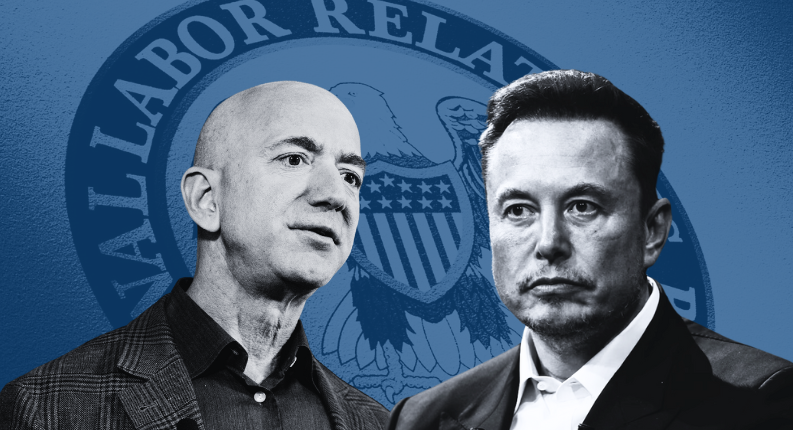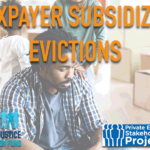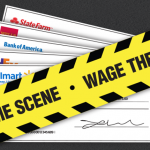CONTACT:
Kimberly Freeman, 202-822-2127, ext. 111
kfreeman@americanrightsatwork.org
WASHINGTON, DC—In response to the introduction of the Employee Free Choice Act (H.R. 800) in the House last week, business special interest groups have launched a campaign to derail reform of the nation’s broken labor law system. “The notion that corporate lobbying coalitions and front groups are the new champions of workers’ rights and democracy is laughable,” says American Rights at Work Executive Director Mary Beth Maxwell. “Hard-working nurses, construction workers, retail clerks, and customer service representatives need Congress to give them an honest chance to form a union and a shot at the American Dream.”
While pretending to protect the well-being of U.S. workers, deep-pocketed, anti-union special interests are cranking out misinformation designed to mislead the public about the bill’s intentions. The Employee Free Choice Act does not abolish elections. Under the proposed legislation, workers get to choose the union formation process—elections or majority sign-up. Says Maxwell, “What the Employee Free Choice Act does prevent is an employer manipulating the flawed system to silence workers who attempt to form unions and bargain for higher wages, benefits, and better working conditions.”
Misrepresenting Current NLRB ‘Election’ Process as Democratic
In a news release today, the Coalition for a Democratic Workplace, a newly-formed alliance of corporate lobbying groups, claimed that union elections supervised by the National Labor Relations Board (NLRB) are “the only way to guarantee worker protection from coercion and intimidation.” Similarly, in a statement last week, the Associated Builders and Contractors (ABC) claimed that in NLRB-supervised elections, “the board follows strict procedures to ensure that the election is fair and free of fraud and coercion.” Opponents fail to address the fact that under the current system, employers often use a combination of legal and illegal methods to silence employees who attempt to form unions and bargain for wages and better working conditions.
According to a 2000 study by Cornell University professor Kate Bronfenbrenner, when faced with union organizing campaigns: 25 percent of employers illegally fire pro-union workers; 51 percent of employers illegally threaten to close down worksites if the union prevails; and, 34 percent of employers coerce workers into opposing the union with bribes and favoritism. A 2005 study by researchers at the University of Illinois Chicago designed to replicate Bronfenbrenner’s study in the metropolitan Chicago area confirmed her findings and found the use of coercive tactics to be even higher.
The Center for Union Facts, an anti-union front group, said in its news release last week, “legal recognition of a union has traditionally been achieved through secret ballot elections…just like how a person votes for a senator or congressman.” Solid research of democratic election standards in the U.S. refutes such claims.
“The presence of secret ballots can’t overcome the corrupt nature of NLRB elections,” says political scientist and University of Oregon professor Gordon Lafer, Ph.D. “They look more like the discredited practices of rogue regimes abroad than anything we would call American.” In his 2005 report, Free and Fair? How Labor Law Fails U.S. Democratic Election Standards, Dr. Lafer measured the union representation election process against democratic election standards established by the political philosophy and published works of the Founding Fathers, the historical development of electoral law and jurisprudence, and current statutes and regulations that define “free and fair” elections. Lafer’s examination found that: workers’ free speech rights are squelched; employers practice various forms of economic coercion; and, labor law allows employers to indefinitely delay recognition through drawn out appeals. “The existence of such realities make the current system utterly undemocratic,”concludes Lafer.
Misrepresenting the Majority Sign-Up Process as Coercive
In a press release issued last week, the National Right to Work Foundation (NRTW) claimed that card check (also known as “majority sign-up”), is “extremely susceptible to union corruption.”
Last March, American Rights at Work issued the results of a national telephone survey of workers from worksites where employees sought to form unions using either an NLRB election or the majority sign-up process. Research was conducted by Rutgers University and Wheeling Jesuit University professors Adrienne Eaton, Ph.D., and Jill Kriesky, Ph.D.
The survey findings reveal that workers in NLRB elections were twice as likely (46 percent vs. 23 percent) as those in majority sign-up campaigns to report that management coerced them to oppose the union. Further, less than one in twenty workers (4.6 percent) who signed a card with a union organizer reported that the presence of the organizer made them feel pressured to sign the card.
Setting the Record Straight on the Employee Free Choice Act
The Employee Free Choice Act would level the playing field by strengthening penalties against lawbreaking employers; requiring mediation and arbitration to help employers and employees reach a first contract in a reasonable period of time; and, permitting workers to form a union through majority sign-up, a process in which workers present signed authorization cards as demonstration of their choice to belong to a union.
“The current labor law system is broken and the Employee Free Choice Act can help fix it,” concludes Maxwell. “When middle-class Americans are struggling to make ends meet, we can’t afford to let unscrupulous, anti-union business interests stop positive change.”






